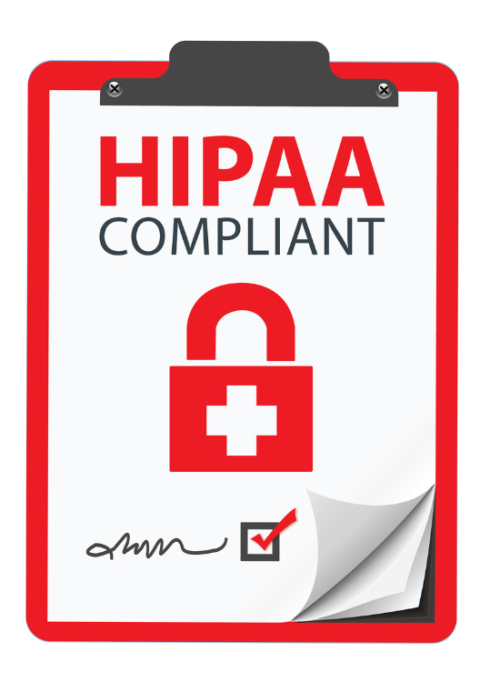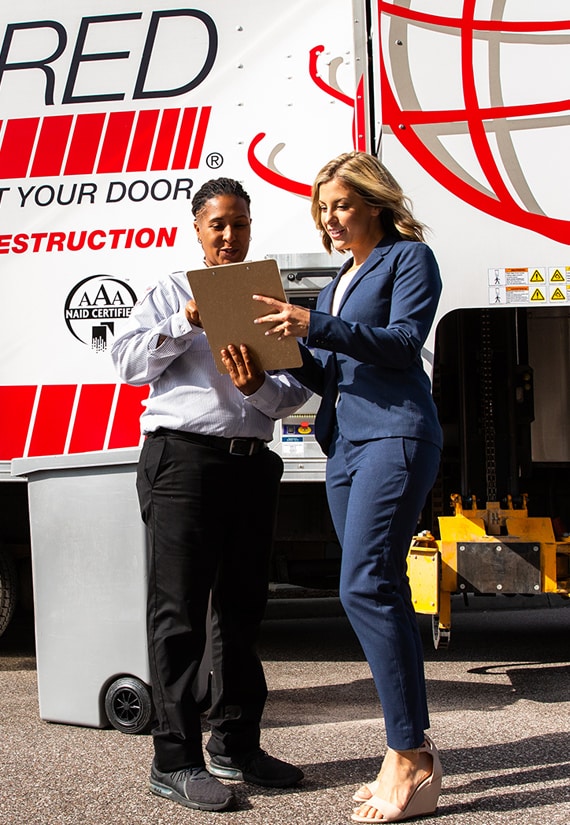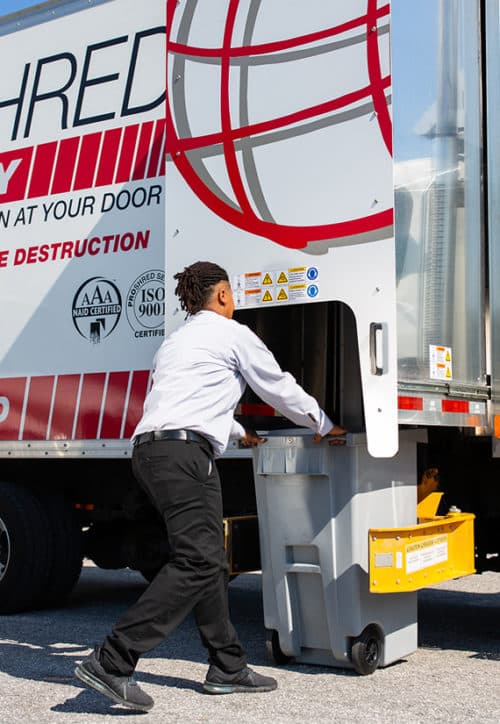March 11, 2022
What to Know About HIPAA and Medical Record Shredding
Taking the proper steps to ensure that all files containing private information are properly disposed of is a vital part of every organization’s operations. Not only does this protect the company from having its confidential data exposed, but it also protects the privacy of citizens. Frankly, no one understands this quite like those handling protected health information (PHI) while working in the medical field.
Many people are aware that healthcare providers are subject to severe fines and potential legal action if they are found to be in violation of HIPAA, though they may not understand exactly what that means. So what is HIPAA and how does it affect the disposal of medical records? Let’s take a look.
What does HIPAA stand for?
The Health Insurance Portability and Accountability Act (HIPAA) is a federal law that was passed in 1996 in an effort to better protect the privacy of an individual when it comes to their medical history. This act prevents medical information from being disclosed to others without the consent of the patient. In addition, it aids the flow of information between the patient’s healthcare providers to ensure more personalized care.
Though this increased flow of information does wonders for treatment plans, with it comes a higher risk of data breaches. To mitigate this risk, lawmakers added a Privacy Act to HIPAA that lays out strict guidelines regarding what information can be shared and who can share it.

What does HIPAA protect?
All information that is classified as PHI is protected by HIPAA privacy laws. Health records, medical bills, test results, and other similar documents are the most common forms of PHI, though HIPAA considers all documents that contain their 18 identifiers to be PHI. These identifiers include things such as names, phone numbers, social security numbers, health insurance information, and email addresses.
To put it in the simplest terms, every organization that works with documents containing PHI must adhere to HIPAA’s stringent rules that regulate the handling, sharing, and disposal of those documents. These organizations are also responsible for ensuring that each and every one of their employees is properly trained on the ins and outs of HIPAA compliance. This training not only covers day-to-day operations involving PHI but also the proper storage and disposal of the documents.

How to Keep Medical Records Secure
To better ensure that your medical facility remains compliant with all regulations laid out by HIPAA, there are a few different steps that you can take. Firstly, be sure that you keep all of your sensitive documents in locked rooms or cabinets and that no files are left unattended in an area where an unauthorized individual could potentially see them. Additionally, you should invest in installing firewalls and other cyber security measures on all devices and networks that have access to digital PHI files.
However, many facilities often forget about the importance of properly disposing of these materials when they are no longer needed. By simply tossing the files into a trash bin, they are leaving themselves exposed to sizable fines and legal action if the information were to be leaked to the public. To ensure that this doesn’t happen, it’s crucial that all organizations handling files containing PHI take the time to securely shred the documents. By far the most cost-effective and efficient way to do this is to hire a professional medical record shredding service.
A mobile shredding company experienced with medical record disposal can take your facility’s unneeded materials and render them completely unusable with an industrial shredding machine housed within a large box truck. This type of shredding is much more secure than the standard personal shredding machine, making it the ideal solution for those looking for HIPAA compliance. Instead of long, recognizable strips, a mobile shredding company can take a sheet of paper and turn it into minuscule pieces that are nearly impossible to reassemble.
Dispose of Sensitive Medical Information with Proshred®
Anyone in the healthcare field who would like to ensure their continued HIPAA compliance should choose Proshred® Baltimore for all of their ongoing shredding needs. In addition to shredding your physical files, Proshred® also provides hard drive destruction as well as product shredding to protect your data from every angle.
Our team understands just how important it is to protect the confidentiality of your patients and staff members. That is why we have taken the necessary steps to become the only ISO 9001 certified and NAID AAA-rated shredding provider in the area. To learn more about how we can help you maintain HIPAA compliance, contact us today for a free quote.

